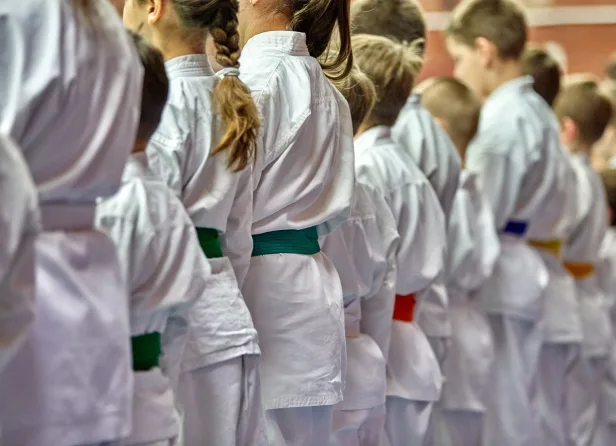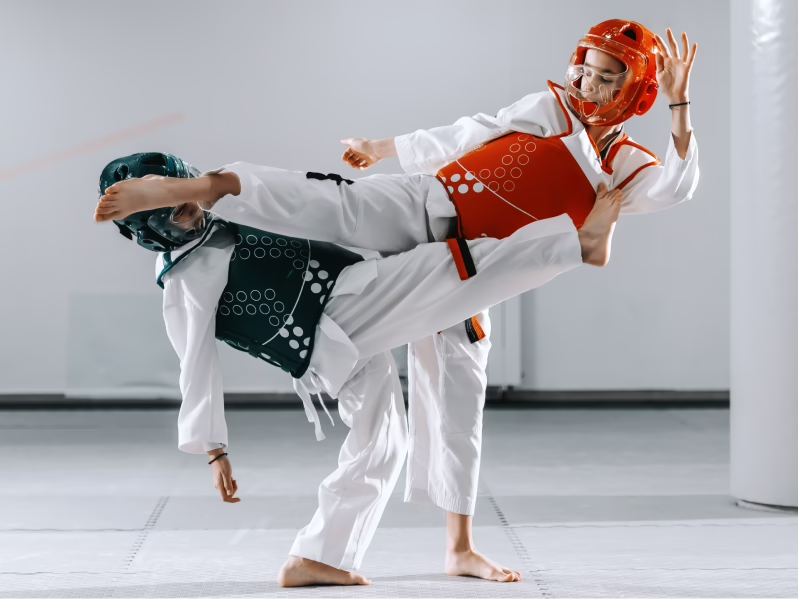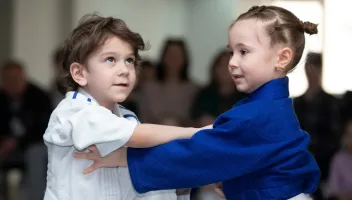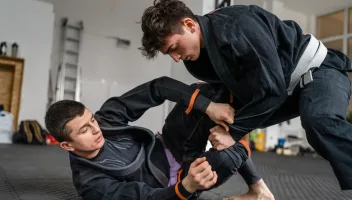Programs
Home / Programs

Try Our Quick Start Program!
Try Our Quick Start Program!
The Quick Start Program has been an innovative introduction process and lends proof to the confidence World Karate has in its programs.

Tae Kwon Do
Tae Kwon Do Martial Arts remain one the best after school activities a child in Fairfax County can be involved.

After School Martial Arts
World Karate serving Fairfax County has a very good track record in After School Program retention.

Summer Camps
This is open to World Karate Students/non-students for Teacher work days camps, Snow day camps, and Summer/Spring camps.

Tiny Tigers
This class is an exciting way for your child to become involved in martial arts at a young age.

Jiu Jitsu
World Karate is a proud affiliate of Capital MMA, with the only black belts in Virginia and Washington DC under Mixed Martial Arts (MMA) legend.

Parent’s Night Out
It is a night where you could drop off your children at World Karate for three (3) hours and open for members and non-school members.

World Karate is a proud affiliate of Capital MMA
With the only black belts in Virginia and Washington DC under Mixed Martial Arts (MMA) legend–and world’s leading self-defense expert–Royce Gracie.
What Our Client Say
What a wonderful place this is!!!!!! Mr. Jason and the staff are WONDERFUL with the kids. The kids learn discipline, to be respectful of others, patience, increase self-confidence, cooperation, he redirects and disciplines with a warm, humorous interaction without embarrassing the child. I have seen Mr. Jason in action, God has given Mr. Jason a SPECIAL gift with all types of kids. The kids greatly benefit from attending the classes. I have seen kids become more attentive, more focused and able to participate. These kids are always part of the Karate TEAM they are NEVER left out. World Karate teaches every child to interact and respect others that may be different. I highly recommend World Karate!
Adriana A.Fairfax, VA
World Karate produces outstanding black belts. These black belts are among those whom I would classify as "first class" without hesitation. This school offers martial arts training in traditional tae kwon do for those who want to achieve black belt rank, cardio-kickboxing for those who do not necessarily want to achieve rank but want to learn self-defense, and other training is also available. Already a black belt, I compared many schools before choosing this one, and have been here many years. I hope to be here many more.
Charley T.Springfield, VA
Last summer, I was in search of an after school program for my child. I learned of World Karate from my child's school. As soon as we walked through the door, the owner, Mr. Jason, greeted us with a very friendly and welcoming approach. More importantly, he connected with my child, and did so with every child and family member coming in the door. Jason is a long standing citizen of this community and its easy to see why he has so many returning customers. Additionally, the after school and evening instructors are equally friendly and have a terrific rapport with the children helping them to maintain their focus and build confidence. I strongly recommend this facility over the local competitors because of the outstanding customer relationships and quality.
Lisa B.Fairfax, VA
I've been attending the adult cardio kickboxing classes at World Karate since July 2013 and I love it there. The instructors are great, pushing you to get a great workout and helping you with your boxing form. The classes have a good variety of exercises. All classes involve punching or kicking. Sometimes you work alone on a standing bag and sometimes you are partnered up and holding a bag for your partner to punch. They throw in other exercises like pushups, abs, and jump rope to ensure that you are getting a good full body workout. If you are looking for a kickboxing workout or just looking to change up your workout with something new you should definitely check out their classes.
Jessica M.Oakton, VA
Please allow this email to serve as a letter of recommendation for World Karate Martial Arts Schools. World Karate is a leader in the Martial Arts community. His kid friendly programs have produced Martial Arts Championships as well as Champion in life. He is innovative and always "cutting edge" with his approach to teaching and motivating. I have partnered with him and his schools on many occasions and the events have always been of the utmost integrity. I highly recommend World Karate. I have and will continue to partner with him the utmost confidence.
Arlene L.Stafford, VA
Try Our FREE 30-Day Program!
World Karate, offering the finest Martial Arts instruction in Fairfax, Annandale, Burke and West Springfield. World Karate is a great place for the entire family to realize and achieve their martial arts goals.

